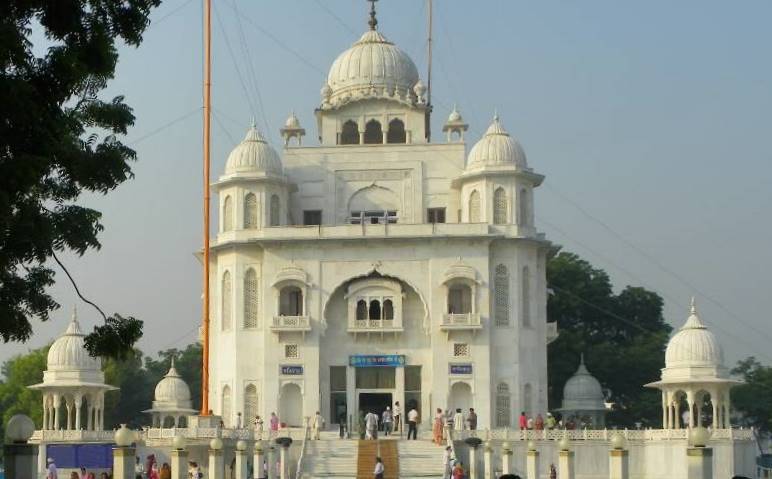Explore the Rikabganj Agitation (1913-20), a pivotal Sikh protest against the British demolition of the Gurdwara Rikabganj wall in New Delhi.
Discover the legacy of Ram Singh, a Khalsa warrior, and Punjabi hero, who fought valiantly with Banda Singh Bahadur. Explore his battles and sacrifice.
AJlT SINGH (1881-1947), patriot and revolutionary, was born in February 1881 at Khatkar Kalari, in Jalandhar district of the Punjab, the son of Arjan Singh and Jai Kaur. He had his early education in his village and then at Sain Dass Anglo Sanskrit High School, Jalandhar, and D.A.V. College, Lahore. He later joined the Bareilly College to study law, but left without completing the course owing to ill health. He became a munshi or teacher of Oriental languages, establishing himself at Lahore. In 1903, he was married to Harnam Kaur, daugher of Dhanpat Rai, a pleader of Kasur.
BHAGAT SINGH (1907-1931), revolutionary and martyr, was born on 27 September 1907 at the village of Banga, Lyallpur district (now in Pakistan) the second son of Kishan Singh and Vidya Vati. Bhagat Singh was imbued from childhood with the family`s spirit of patriotism. At the time of his birth, his father was in jail for his connection with the Canal Colonization Bill agitation, in which his brother, Ajit Singh (Bhagat Singh`s uncle), took a leading part. Through his father, who was a sympathizer and supporter of the Ghadr campaign of 191415, Bhagat Singh became an admirer of the leaders of the movement.
Chitrakar, Ishwar Singh (1912 -1968), a noted painter and poet in Punjabi, was born in 1912 and died in 1968. His pen name, Chitrakar, indicates his penchant for painting and painting to him was as dear a medium of creativity as poetry was. Literary movements of his time did not fascinate him. He was lonely and forsaken but true to his innermost spirit of freedom and love. He is the author of two collections of essays entitled Kalam di Awaz (The Voice of the Pen) and Gal Bat (Conversation).
GONDA, CHAUDHARI, one of the headmen of the village of Muloval, now in Sarigrur district of the Punjab, was converted to the Sikh faith by Guru Tegh Bahadur. According to local tradition supported by old chronicles, when Guru Tegh Bahadur visited Muloval, he stopped near the village well to find it covered with bushes. The villagers explained that its water was brackish. The Guru told them to remove the bushes covering it, and declared the water to be sweet. Not only was the old well sweetened, the Guru persuaded the villagers to sink nine more wells.Everyone present was impressed and asked for the Guru`s blessing, but Gonda in his pride declined to receive the Guru`s benediction.
Discover the dramatic life of Humayun, the Mughal emperor of India. Explore his battles, exile, and brief return to power in this historical narrative.
Explore the inspiring journey of Sant Karam Singh, a revered Sikh saint who served in the Sikh army and protected others during the 1857 Delhi Siege.
Discover Lal Singh's acclaimed travelogues and essays that shaped modern Punjabi prose. Explore Mera Valayati Safar Nama and more!





